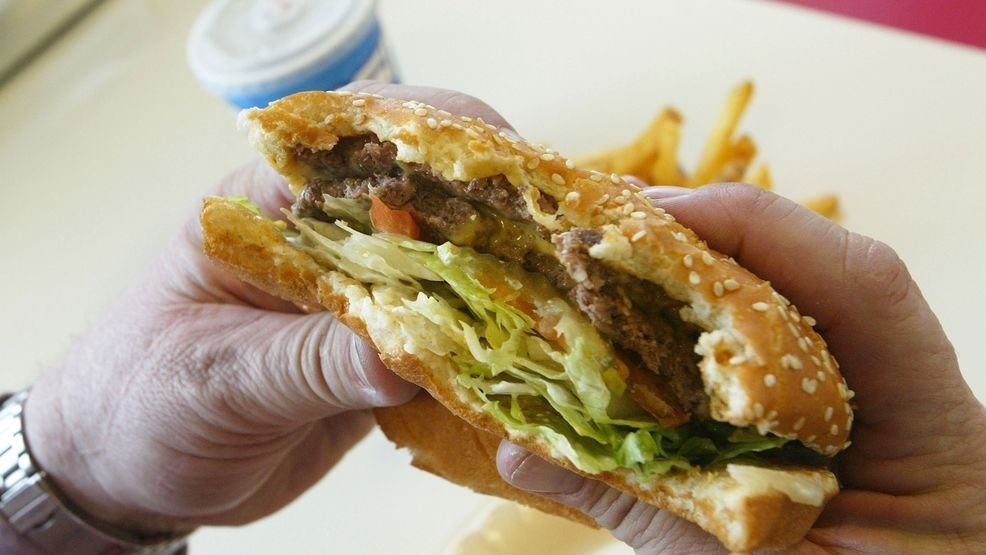Description
(TNND) — A newly published study suggests a lot of Americans are overweight because of their lousy diets, not their sedentary lifestyles.
The study pulled from years of research across the globe and found that active hunter-gatherers in northern Tanzania expend about the same number of calories as Americans who are tethered to a desk for eight to 10 hours a day.
“Energy expenditure is basically the same across the full spectrum of lifestyle,” said Herman Pontzer, a professor of evolutionary anthropology and global health at Duke University and a senior author on the new study.
At most, the fact that many Americans and other people living in rich, developed countries expend less energy might account for one-tenth of the obesity problem, he said.
While this wasn’t a weight-loss study, the findings suggest that diet should be your focus if your goal is to lose weight.
Dr. Alysia Robichau at Houston Methodist, who wasn’t involved with the study, said the research sheds new light on the “energy in, energy out” perspective of weight loss.
“So, they're basically saying that it's not as much calories burned as what we're putting in diet,” said Robichau, a primary care and sports medicine doctor.
She said diets aren’t one-size-fits-all, but she said people should eat whole foods – fruits, vegetables, legumes and meats.
“Some people do carnivore. Some people do vegan. There's a lot of different options, but it's whole, non-processed food,” Robichau said. “That means you don't get to eat at the fast-food stores. You don't get to eat a lot of food out of a box."
People generally take in too few calories from protein and too many from carbohydrates. And that’s often out of cost or convenience.
“Most people do best with a moderate protein, lower carb, and mild to moderate fat content on their macros,” Robichau said.
Pontzer said he and his colleagues around the world studied over 4,000 adults from 34 population groups.
And he said they used the gold standard for measuring caloric burn.
Participants drank “doubly labeled water” and then contributed urine samples that allowed scientists to measure their energy expenditure, he said.
The approach was safe and didn’t interfere with participants’ normal daily routines.
The water contained different isotopes from typical drinking water. And the urine samples allowed scientists to see how a participant’s body flushed the isotopes, and thus they could calculate how much carbon dioxide someone produced over a one- or two-week span.
A person can’t make carbon dioxide without burning calories, Pontzer said.
“That's like the exhaust of your metabolic engine,” he said.
And he said that’s a really accurate way of measuring how many calories someone burns.
The study might offer hope to overweight Americans who think they’re too busy to get to the gym but want to shed some pounds.
“Abs are made in the kitchen,” Robichau said.
But both Pontzer and Robichau said exercise is still really important.
“Most of us still want you to move more,” Robichau said. “Now, you don't have to be a runner. You don't have to be a marathoner. But you absolutely need to move more.”
She said 60 minutes of activity five days a week is advised for weight loss, but something is better than nothing. Twenty minutes a day will still help, Robichau said.
But, as the new study suggests, diet is a far better tool for weight loss than exercise.
“It is what you eat,” Robichau said. “It is not how many crunches or sit-ups or how much running you do. ... You cannot outrun a bad diet.”
Other Related News
07/16/2025
CAIRO Ga WALB - The city of Cairo announced a temporary water outage happening on Wednesda...
07/16/2025
ORLANDO Fla AP A drenching weather system moving across Florida on Tuesday wasnt even a t...
07/16/2025
ALBANY Ga WALB Drivers in Albany should be aware of a temporary road closure starting thi...
07/16/2025
TALLAHASSEE Fla WCTV - The man accused of opening fire on Florida State Universitys campus...
07/16/2025









